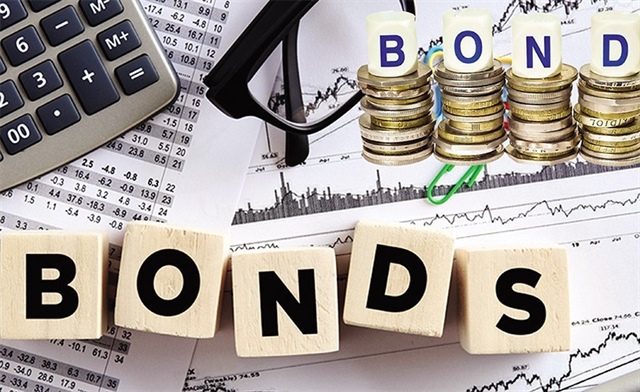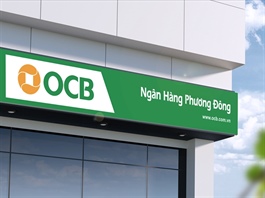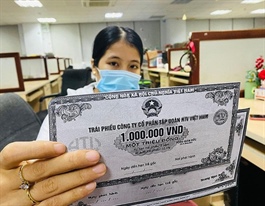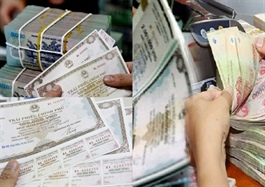Corporate bonds a critical lifeline for Vietnam’s infrastructure ambitions
Corporate bonds a critical lifeline for Vietnam’s infrastructure ambitions
With limited public funding, corporate bonds are emerging as a vital tool to attract long-term private capital and boost sustainable growth, especially as Vietnam needs $245 billion for infrastructure development by 2030.
In a report on future capital flows released on July 25, analysts from Hanoi-based credit rating agency VIS Rating estimate that between 2025 and 2030, Vietnam will need roughly $245 billion for expressways, high-speed rail, and energy projects.
Public investment, however, is projected to meet only around 70 per cent of this requirement.
“In recent years, private investment has become the main driver of capital formation, accounting for more than 50 per cent of total registered fixed asset investment,” said Nguyen Ly Thanh Phuong, head of research at VIS Rating. “As the central bank (SBV) tightens regulations on using short-term deposits for long-term lending, bank credit has become increasingly constrained, highlighting the growing importance of the bond market.”
|
The report reveals that bank lending to toll road projects, for example, declined at an average annual rate of 6 per cent between 2020 and 2024. To bridge the infrastructure funding shortfall, VIS Rating analysts argue that Vietnam must further deepen its corporate bond market and attract more long-term private capital.
Recent regulatory reforms are paving the way for more flexible bond issuances.
The amended Public-Private Partnership (PPP) Law, for instance, now allows PPP enterprises to privately place bonds and immediately list them after issuance.
The government is also increasing equity contributions to reduce debt burdens and improve credit profiles for PPP enterprises. A forthcoming decree is expected to permit public offerings of infrastructure bonds without requiring a financial track record, potentially unlocking additional capital for critical projects.
Measures such as the appointment of supervising banks, the use of segregated accounts, and disbursement in line with project milestones are being introduced to create a more robust legal framework.
The corporate bond channel is also seeing stricter requirements on information disclosure, eligibility conditions, and mandatory credit ratings, all of which aim to strengthen investor confidence and enhance market transparency.
These reforms, when implemented in tandem, are expected to position corporate bonds as a viable and long-term funding tool for Vietnam’s infrastructure ambitions.
At a meeting in Hanoi this March, Le Hong Khanh, head of research at FiinRatings, noted that companies should move towards a more balanced capital structure. “Currently, corporate funding relies heavily on short-term debt to finance long-term investments and operations. This undermines strategic flexibility in long-term planning,” he said. FiinGroup is Vietnam's leading provider of financial data analytics platforms, business intelligence, and industry research.
Although the corporate bond market holds significant potential to meet the economy’s funding needs, its contribution remains modest. To realise this potential, the market must be expanded and made more accessible to institutional investors.
“While the government has been implementing reforms to improve the legal infrastructure of the financial and capital markets, accelerating the development of the corporate bond market is essential to ensuring stable medium- and long-term capital for the economy,” he said. “This is especially important as Vietnam transitions towards high-tech industries and sustainable development, both of which demand substantial long-term investment.”
To fully unlock the bond market’s potential as an effective capital-raising tool, Khang called for further reforms, a broader investor base, and the development of higher-quality support mechanisms. These steps are crucial to building a more sustainable financial system aligned with Vietnam’s long-term development goals.
Experts assume that at this point, infrastructure bonds are no longer optional, they are essential. To realise a modern, connected, and sustainable infrastructure network, Vietnam must leverage the corporate bond market as a core funding channel.
Mega-projects such as the North-South Expressway, the North-South high-speed railway, the national logistics network, and large-scale renewable energy complexes all demand massive capital, extended tenors, strong transparency, and robust risk management.
Without a mature capital market for infrastructure, these goals would be difficult to achieve, or will remain overly reliant on public budgets and bank credit.
- 16:53 29/07/2025

























